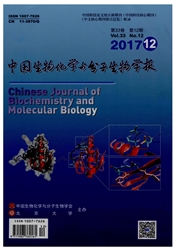

 中文摘要:
中文摘要:
利用RNA干涉文库进行大规模高通量的功能基因扫描,已成为发现新功能基因的重要方式和手段.为了寻找在细胞增殖和分化过程中的新功能基因,根据斯坦福大学公布的与人类胚胎干细胞和造血干细胞增殖和分化过程中有关基因的基因芯片的分析结果,组建了与细胞增殖和分化有关的RNA限制性干涉文库.该文库包括靶向各类基因的载体,如包括转录因子、各类蛋白激酶、细胞周期调控蛋白以及一些未知功能基因在内的225个基因.利用这个限制性RNA干涉文库对控制HeLa细胞增殖的基因进行筛选.并通过WST-1高通量检测,发现了2个同HeLa细胞增殖相关的基因:CNKSR3(Homo sapiens CNKSR family member 3)和Fosl2(Homo sapiens FOS-like antigen 2),并初步证实:沉默CNKSR3会促进HeLa细胞的增殖,而沉默Fosl2则抑制HeLa细胞的增殖功能.
 英文摘要:
英文摘要:
RNAi-based high throughput assay was widely used for screening and identifying functional genes. In search for new functional genes related to the cell proliferation and differentiation, we constructed a plasmidbased siRNA library targeting to the genes with over 2 folds of up/down-regulations during embryonic development according to the Stanford Microarray data. The library contains 450 vectors targeting 225 different human genes, including transcription factors, protein kinases, and gene products with unknown functions. We found that the proliferation of HeLa ceils was increased by CNKSR3 (Homo sapiens CNKSRfamily member 3), but suppressed by the silencing of Fosl2 (Homo sapiens FOS-like antigen 2).
 同期刊论文项目
同期刊论文项目
 同项目期刊论文
同项目期刊论文
 期刊信息
期刊信息
